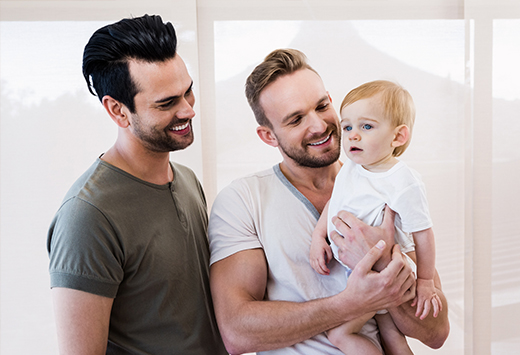Help For Birth Mothers
An adoption is a life-changing experience for everyone involved in the process. However, there’s no universal law when it comes to adoption as it is a unique and personal experience. Mothers who are considering adoption as the choice for their baby need help and support from their family and friends. If help for a birth mother isn’t found within their close circles of friends and family, it is a good idea to turn to support groups. Here are helpful resources for birthmothers where other birthmothers have shared their personal experiences with adoption to encourage other women in the same situation.
Online adoption support groups...
The adoption community is a large network of people with their unique experiences. The internet allows people to find ways to come together. Reading another birthmother’s experiences about the adoption could be helpful for birthmothers, so here are some online adoption support groups.
- Tied At The Heart - Education and support for birthmothers and others touched by the adoption.
- BirthMom Buds - This web-based organization provides counseling, support, and encouragement to pregnant women who are thinking about placing their baby up for adoption.
- Concerned United Birthparents - People come to Concerned United Birthparents for many reasons. Whether you’re just beginning a search, have been recently reunited or are coping with issues related to adoption, you might be seeking support and understanding. This self-supporting organization provides helpful resources and referrals to anyone one coping with the effects of an adoption.
- Birthmothers4Adoption - This blog is a great resource for birthmothers considering placing their baby up for an adoption and for hopeful adoptive parents too.
State-specific support groups for birthmothers...
- American Adoption Congress - This is an international organization devoted to those whose lives have been affected by adoption. Many people choose to attend support groups to gain a better understanding of the adoption experience.
- On Your Feet Foundation - This organization serving Illinois and Indiana honors and values the choice birthmothers have made to place their children for adoption and provides support and community after placement.
Facebook groups and adoption discussion pages...
The majority of active online support groups will be found via Facebook. There are a lot of Facebook adoption groups, pages, and discussions. There seems to be something for everyone.
- Birth Parents & Adoptive Parents Support Pages - This support group is created by a birthmother who wants to provide support for those who are going through the adoption process alone or with little support.
- Birth Mom Missions - This page is created to provide support for all birth moms during and after the adoption process.
- LDS birth parents, adoptive parents, and adoptee support - This closed group is a place to share experiences and to provide support for those who have been involved in the adoption process. Birth mothers, birth fathers, adopted, and adoptive parents are all invited to join.




